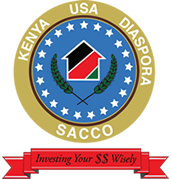A Mega or Consolidated loan is designed for a member who has existing loan balances but due to limited income, is unable to take an additional independent loan.
Thus their only option is to ‘consolidate’ their previous loans with the new loan, such that the new loan repayment amount remains more or less the same with the initial repayment(s).
Requirements and Features:
- The member must have demonstrated consistent repayment with the current loan(s). Defaulters won’t qualify. Additionally, you will need to provide a collateral to qualify for the loan.
- You will be eligible for a loan of upto four times (x4) your current total Main Savings Account contributions.
- Lump sum(Huge Ammounts) deposits made in order to qualify for a higher loan ammount and which are less than 6 months from date of payment will be subjected to 20% commission inline with the loan policy.
- The amount borrowed shall not exceed KES 5 Million; however a higher loan amount may be approved subject to availability of funds.
- The member will be charged a one off commission of 5% on existing loan balances at the time of taking the Mega loan.
- The loan shall attract interest rate of 1.00% per month on a reducing balance.
- The repayment period shall be a maximum of 36 months.
- You will need to have Sacco escrow account with equivalent of at least three months loan repayment amount. This balance must be maintained throughout the loan duration.
- Pay a non-refundable loan-processing fee of 1% of loan amount subject to a minimum of $100.
- Show proof of ability to repay the loan – paystubs, other incomes etc.
- The Security shall be the member’s savings and/or other acceptable property. No member guarantors accepted.
- If you use a developed property (e.g. a house) as collateral, the loan value will not exceed 80% of the market value of the property used as a collateral.
- If you use an undeveloped property (e.g. a plot) as collateral, the loan given will not exceed 75% of market value of the undeveloped property used as a collateral.
Documents required when applying for a loan:
If you are employed:
- Pay-stubs for the latest 3 months
- Letter from employer confirming employment status
- Bank statements for the latest 6 months
- Copy of Kenya ID or Kenya valid Passport
- KRA PIN Certificate
- Copy of the latest W2 Form issued by the employer
- Two passport size photographs
- Security – Copy of the title document of a property acceptable by the Sacco (Minimum lease term 35 years)
If you are Self-employed or Contract:
- Bank statements for the latest 12 months
- Copy of Kenya ID or Kenya valid Passport
- KRA PIN certificate
- Two passport size photographs
- Business registration certificate
- IRS Business Tax Returns for the latest filing year
- Security – Copy of the title document of a property acceptable by the Sacco (Minimum lease term 35 years)
- 1099 Forms and/or any other supporting documents.
If you are constructing a house:
Provide the following documents in addition to the above:
- Approved building plans and structural drawings from relevant authority
- NEMA approval (if applicable)
- Bill of quantities from a registered quantity surveyor.
- Appointment of contractor and contractor agreement (depending on cost)
- Appointment of Architect, Project Manager and other service engineers.
- CVs/ profiles of design team.
Collateral: Securities accepted by the Sacco
The collateral to be used must be located and registered in Kenya. The following are the types of security/collateral that are acceptable.
- Member’s savings: A part of member savings can be used as collateral. A member can borrow upto 80% of their savings without need for an extra security.
- Legal Charge: This form of security is used in cases where property in form of land or lease is used as collateral. The security is perfected by creating a charge and registering an encumbrance against the property being held as collateral.
- Debenture: A debenture is a form of charge registered against the assets of a company, which may be fixed, shares or stock. A debenture may be a floating charge against all the company assets or specific debenture against specific fixed assets.
- Deed of assignment: This is a document that allows the lender to collect any rent accruing from property that belongs to the borrower. In this case, such rent is paid by the tenant directly to the lender to offset the loan.
- Deed of Guarantee and Indemnity: This is a third party guarantee whereby the guarantor agrees to be liable for any non-payment of the loan or incase the borrower dies while the loan is still subsisting. This is further divided into three categories:
- Property deed of guarantee and indemnity – where the property owner guarantees the borrower using his property. Land is the most common and appropriate form of this security to be used as the guarantor’s collateral.
- Directors’ deed of guarantee and indemnity – In this case the directors of a company guarantees the loan advanced to the company. In this case scenario the directors guarantees the amount advanced in their own capacity.
- Corporate deed of guarantee – In this case the company guarantees the loan advanced to the borrower who can be a director or a shareholder in the company.
- Other form of securities are:
- Chattel Mortgage – suitable for medium size and emergency loans, they are in form of Motor Vehicle, Motorcycle or equipment.
- Deed of hypothecation – This is basically stock (store supply) security. If acceptable, proper books of accounts assessment must be done and inspected before creating this form of a security.
How to apply for a Normal Loan:
Loan Products
- Normal Loans
- Special Normal Loans
- Emergency Loans
- Development Loans
- Loyalty Loans
